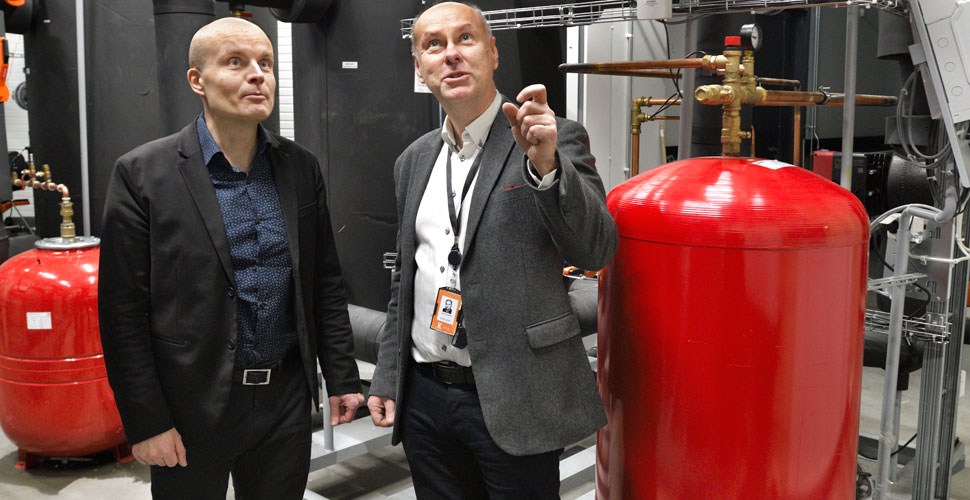
Noomi Järgerhorn (M.Soc.Sc.) has been appointed as Kesko’s Vice President of Sustainability. She will join the company on 1 May 2025, and assume her new position on 1 June 2025 at the latest.


The totally unique energy recycling system combines a very low-emission refrigeration system that uses natural refrigerants, a heating pump and recovery systems required for energy recycling. It utilises the condensation heat created as a by-product for cooling in heating the property. The innovation can reduce a property’s heat consumption by as much as 85-90%, making a store almost carbon neutral in one go.
“The concept can be replicated in stores of all sizes. We have installed the system in 13 K Group properties and next in line are some 60 K-Citymarket stores, 130 K-Supermarket stores and 15 Kespro cash & carry outlets. Overall, the changes will result in annual carbon dioxide emission reductions of some 20,000 tonnes,“ says Jari Pihlajamaa, Building Services Manager at K Group.
“The new energy recycling system effectively utilises all of the property’s waste heat, such as condensation heat from refrigeration systems and exhaust air, as an energy source, and produces energy for all of the property’s heating and cooling systems. The concept also utilises prefabrication as much as possible. The scalability of the concept makes its emissions reduction and energy-efficiency potential significant on a national and even international scale,” says Tuomo Niemelä, the Granlund expert in charge of developing the concept.
K Group and Natural Resources Institute Finland are currently building a concept for a carbon neutral grocery store. It determines the carbon footprint of the store’s operations and the target for decreasing the footprint and then identifies measures to reduce the footprint. Finally, it calculates the need for compensation. More efficient energy use in stores is one key element in the carbon neutral food store concept.
“We actively seek new solutions to improve our energy efficiency. Food stores are particularly energy intensive due to their refrigeration systems. The new energy recycling system revolutionises energy use in our stores and takes energy savings to a whole new level,” says Timo Jäske, Vice President, Sustainability for K Group’s grocery trade division.
For the fifth year in a row, Kesko ranks as the most sustainable trading sector company in the world on the Global 100 list. Kesko has committed to goals of international climate summits and set ambitious emission targets for its operations and supply chain. All electricity purchased by Kesko in Finland for K-stores and other Kesko properties is from renewable sources, and K Group is the biggest producer and user of solar power in Finland.
 YES
YES
 NO
NO